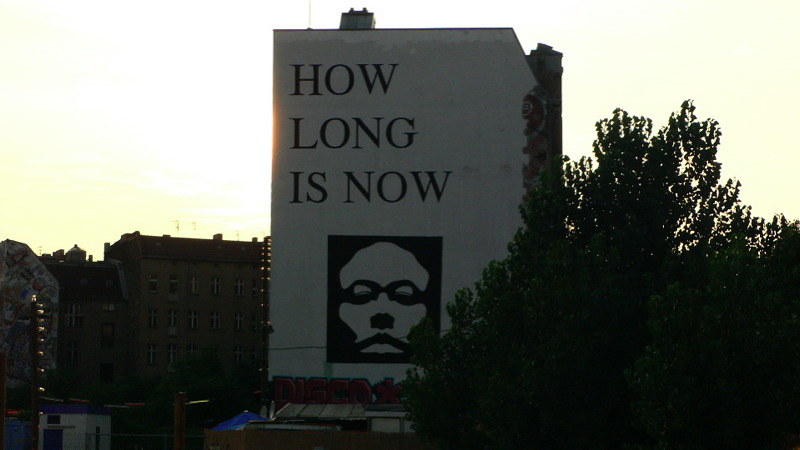Archive for the ‘Fundementals’ Category
Why are people leaving your company?
 People don’t leave a company because they feel appreciated.
People don’t leave a company because they feel appreciated.
People don’t leave a company because they feel part of something bigger than themselves.
People don’t leave a company because they see a huge financial upside if they stay.
People don’t leave a company because they are treated with kindness and respect.
People don’t leave a company because they can make less money elsewhere.
People don’t leave a company because they see good career growth in their future.
People don’t leave a company because they know all the key players and know how to get things done.
People don’t leave the company so they can abandon their primary care physician.
People don’t leave a company because their career path is paved with gold.
People don’t leave a company because they are highly engaged in their work.
People don’t leave a company because they want to uproot their kids and start them in a new school.
People don’t leave a company because their boss treats them too well.
People don’t leave a company because their work is meaningful.
People don’t leave a company because their coworkers treat them with respect.
People don’t leave a company because they want to pay the commission on a real estate transaction.
People don’t leave a company because they’ve spent a decade building a Trust Network.
People don’t leave a company because they want their kids to learn to trust a new dentist.
People don’t leave a company because they have a flexible work arrangement.
People don’t leave a company because they feel safe on the job.
People don’t leave a company because they are trusted to use their judgment.
People don’t leave the company because they want the joy that comes from rolling over their 401k.
People don’t leave a company when they have the tools and resources to get the work done.
People don’t leave a company when their workload is in line with their capacity to get it done.
People don’t leave a company when they feel valued.
People don’t leave a company so they can learn a whole new medical benefits plan.
People don’t leave a job because they get to do the work the way they think it should be done.
So, I ask you, why are people leaving your company?
“Penguins on Parade” by D-Stanley is licensed under
Stop reusing old ideas and start solving new problems.
 Creating new ideas is easy. Sit down, quiet your mind, and create a list of five new ideas. There. You’ve done it. Five new ideas. It didn’t take you a long time to create them. But ideas are cheap.
Creating new ideas is easy. Sit down, quiet your mind, and create a list of five new ideas. There. You’ve done it. Five new ideas. It didn’t take you a long time to create them. But ideas are cheap.
Converting ideas into sellable products and selling them is difficult and expensive. A customer wants to buy the new product when the underlying idea that powers the new product solves an important problem for them. In that way, ideas whose solutions don’t solve important problems aren’t good ideas. And in order to convert a good idea into a winning product, dirt, rocks, and sticks (natural resources) must be converted into parts and those parts must be assembled into products. That is expensive and time-consuming and requires a factory, tools, and people that know how to make things. And then the people that know how to sell things must apply their trade. This, too, adds to the difficulty and expense of converting ideas into winning products.
The only thing more expensive than converting new ideas into winning products is reusing your tired, old ideas until your offerings run out of sizzle. While you extend and defend, your competitors convert new ideas into new value propositions that bring shame to your offering and your brand. (To be clear, most extend-and-defend programs are actually defend-and-defend programs.) And while you reuse/leverage your long-in-the-tooth ideas, start-ups create whole new technologies from scratch (new ideas on a grand scale) and pull the rug out from under you. The trouble is that the ultra-high cost of extend-and-defend is invisible in the short term. In fact, when coupled with reuse, it’s highly profitable in the moment. It takes years for the wheels to fall off the extend-and-defend bus, but make no mistake, the wheels fall off.
When you find the urge to create a laundry list of new ideas, don’t. Instead, solve new problems for your customers. And when you feel the immense pressure to extend and defend, don’t. Instead, solve new problems for your customers.
And when all that gets old, repeat as needed.
“Cave paintings” by allspice1 is licensed under CC BY-ND 2.0
What do you like to do?
 I like to help people turn complex situations into several important learning objectives.
I like to help people turn complex situations into several important learning objectives.
I like to help people turn important learning objectives into tight project plans.
I like to help people distill project plans into a single-page spreadsheet of who does what and when.
I like to help people start with problem definition.
I like to help people stick with problem definition until the problems solve themselves.
I like to help people structure tight project plans based on resource constraints.
I like to help people create objective measures of success to monitor the projects as they go.
I like to help people believe they can do the almost impossible.
I like to help people stand three inches taller after they pull off the unimaginable.
I like to help people stop good projects so they can start amazing ones.
If you want to do more of what you like and less of what you don’t, stop a bad project to start a good one.
So, what do you like to do?
Image credit — merec0
How To Be Novel
 By definition, the approach that made you successful will become less successful over time and, eventually, will run out of gas. This fundamental is not about you or your approach, rather it’s about the nature of competition and evolution. There’s an energy that causes everything to change, grow and improve and your success attracts that energy. The environment changes, the people change, the law changes and companies come into existence that solve problems in better and more efficient ways. Left unchanged, every successful business endeavor (even yours) has a half-life.
By definition, the approach that made you successful will become less successful over time and, eventually, will run out of gas. This fundamental is not about you or your approach, rather it’s about the nature of competition and evolution. There’s an energy that causes everything to change, grow and improve and your success attracts that energy. The environment changes, the people change, the law changes and companies come into existence that solve problems in better and more efficient ways. Left unchanged, every successful business endeavor (even yours) has a half-life.
If you want to extend the life of your business endeavor, you’ve got to be novel.
By definition, if you want to grow, you’ve got to raise your game. You’ve got to do something different. You can’t change everything, because that’s inefficient and takes too long. So, you’ve got to figure out what you can reuse and what you’ve got to reinvent.
If you want to grow, you’ve got to be novel.
Being novel is necessary, but expensive. And risky. And scary. And that’s why you want to add just a pinch of novelty and reuse the rest. And that’s why you want to try new things in the smallest way possible. And that’s why you want to try things in a time-limited way. And that’s why you want to define what success looks like before you test your novelty.
Some questions and answers about being novel:
Is it easy to be novel? No. It’s scary as hell and takes great emotional strength.
Can anyone be novel? Yes. But you need a good reason or you’ll do what you did last time.
How can I tell if I’m being novel? If you’re not scared, you’re not being novel. If you know how it will turn out, you’re not being novel. If everyone agrees with you, you’re not being novel.
How do I know if I’m being novel in the right way? You cannot. Because it’s novel, it hasn’t been done before, and because it hasn’t been done before there’s no way to predict how it will go.
So, you’re saying I can’t predict the outcome of being novel? Yes.
If I can’t predict the outcome of being novel, why should I even try it? Because if you don’t, your business will go away.
Okay. That last one got my attention. So, how do I go about being novel? It depends.
That’s not a satisfying answer. Can you do better than that? Well, we could meet and talk for an hour. We’d start with understanding your situation as it is, how this current situation came to be, and talk through the constraints you see. Then, we’d talk about why you think things must change. I’d then go away for a couple of days and think about things. We’d then get back together and I’d share my perspective on how I see your situation. Because I’m not a subject matter expert in your field, I would not give you answers, but, rather, I’d share my perspective that you could use to inform your choice on how to be novel.
“Giraffe trying to catch a twig with her tongue” by Tambako the Jaguar is licensed under CC BY-ND 2.0
What’s in the way of taking care of yourself?
 When there’s nothing left in your tank, what do you do? When it’s difficult for you to keep your head above water, what do you do? When you see people who need help, do you spend your energy to help them or do you preserve your energy for yourself?
When there’s nothing left in your tank, what do you do? When it’s difficult for you to keep your head above water, what do you do? When you see people who need help, do you spend your energy to help them or do you preserve your energy for yourself?
If no one at your company has the energy to spare, what are the consequences? If a small problem isn’t solved quickly, might it snowball into something unmanageable? If a series of unsolved problems develop into a series of avalanches, couldn’t that change the character of your company? If everyone at your company is out of gas, what does that say?
If your calendar is full of standing meetings, you have no time for deep work. But, if your calendar has free space, that gives others the opportunity to fill your calendar with their priorities. Is it okay to say no to a meeting? Is it okay to preserve time for deep thought? Is it okay to cancel the whole meeting series for a standing meeting? What would it mean to your mental health if you deleted standing meetings and freed up six hours per week? What would it mean to the quality of your work? Might you even get to do the foundational work that is vital to next year’s success?
What would it mean if you could create a four-hour block of uninterrupted time that recurred wice per week? What could you accomplish in those two luscious time blocks? How many problems could you avoid? How many cross-team relationships could build? How much could you learn from researching the state-of-the-art? How much could you accelerate your projects? How many young people could you help?
What’s in the way of canceling some meetings? Is your mental health worth it? What’s in the way of scheduling a four-hour meeting with yourself twice a week? Is your work important enough? What’s in the way of stopping work at a reasonable time so you can get your personal things done, get some exercise, and spend time with your family? What would your company think if you took care of yourself and had some energy to spare for others?
What’s in the way of taking care of yourself?
“Toe Art…Concern & Care” by VinothChandar is licensed under CC BY 2.0
If nine out of ten projects projects fail, you’re doing it wrong.
 For work that has not been done before, there’s no right answer. The only wrong answer is to say “no” to trying something new. Sure, it might not work. But, the only way to guarantee it won’t work is to say no to trying.
For work that has not been done before, there’s no right answer. The only wrong answer is to say “no” to trying something new. Sure, it might not work. But, the only way to guarantee it won’t work is to say no to trying.
If innovation projects fail nine out of ten times, you can increase the number of projects you try or you can get better at choosing the projects to say no to. I suggest you say learn to say yes to the one in ten projects that will be successful.
If you believe that nine out of ten innovation projects will fail, you shouldn’t do innovation for a living. Even if true, you can’t have a happy life going to work every day with a ninety percent chance of failure. That failure rate is simply not sustainable. In baseball, the very best hitters of all time were unsuccessful sixty percent of the time, yet, even they focused on the forty percent of the time they got it right. Innovation should be like that.
If you’ve failed on ninety percent of the projects you’ve worked on, you’ve probably been run out of town at least several times. No one can fail ninety percent of the time and hold onto their job.
If you’ve failed ninety percent of the time, you’re doing it wrong.
If you’ve failed ninety percent of the time, you’ve likely tried to solve the wrong problems. If so, it’s time to learn how to solve the right problems. The right problems have two important attributes: 1) People will pay you if they are solved. 2) They’re solvable. I think we know a lot about the first attribute and far too little about the second. The problem with solvability is that there’s no partial credit, meaning, if a problem is almost solvable, it’s not solvable. And here’s the troubling part: if a problem is almost solved, you get none of the money. I suggest you tattoo that one on your arm.
As a subject matter expert, you know what could work and what won’t. And if you don’t think you can tell the difference, you’re not a subject matter expert.
Here’s a rule to live by: Don’t work on projects that you know won’t work.
Here’s a corollary: If your boss asks you to work on something that won’t work, run.
If you don’t think it will work, you’re right, even if you’re not.
If it might work, that’s about right. If it will work, let someone else do it. If it won’t work, run.
If you’ve got no reason to believe it will work, it won’t.
If you can’t imagine it will work, it won’t.
If someone else says it won’t work, it might.
If someone else tries to convince you it won’t work, they may have selfish reasons to think that way.
It doesn’t matter if others think it won’t work. It matters what you think.
So, what do you think?
If you someone asks you to believe something you don’t, what will you do?
If you try to fake it until you make it, the Universe will make you pay.
If you think you can outsmart or outlast the Universe, you can’t.
If you have a bad feeling about a project, it’s a bad project.
If others tell you that it’s a bad project, it may be a good one.
Only you can decide if a project is worth doing.
It’s time for you to decide.
“Good example of Crossfit Weight lifting – In Crossfit Always lift until you reach the point of Failure or you tear something” by CrossfitPaleoDietFitnessClasses is licensed under CC BY 2.0
Run toward the action!
 Companies have control over one thing: how to allocate their resources. Companies allocate resources by deciding which projects to start, accelerate, and stop; whom to allocate to the projects; how to go about the projects; and whom to hire, invest in, and fire. That’s it.
Companies have control over one thing: how to allocate their resources. Companies allocate resources by deciding which projects to start, accelerate, and stop; whom to allocate to the projects; how to go about the projects; and whom to hire, invest in, and fire. That’s it.
Taking a broad view of project selection to include starting, accelerating, and stopping projects, as a leader, what is your role in project selection, or, at a grander scale, initiative selection? When was the last time you initiated a disruptive yet heretical new project from scratch? When was the last time you advocated for incremental funding to accelerate a floundering yet revolutionary project? When was the last time you stopped a tired project that should have been put to rest last year? And because the projects are the only thing that generates revenue for your company, how do you feel about all that?
Without your active advocacy and direct involvement, it’s likely the disruptive project won’t see the light of day. Without you to listen to the complaints of heresy and actively disregard them, the organization will block the much-needed disruption. Without your brazen zeal, it’s likely the insufficiently-funded project won’t revolutionize anything. Without you to put your reputation on the line and decree that it’s time for a revolution, the organization will starve the project and the revolution will wither. Without your critical eye and thought-provoking questions, it’s likely the tired project will limp along for another year and suck up the much-needed resources to fund the disruptions, revolutions, and heresy.
Now, I ask you again. How do you feel about your (in)active (un)involvement with starting projects that should be started, accelerating projects that should be accelerated, and stopping projects that should be stopped?
And with regard to project staffing, when was the last time you stepped in and replaced a project manager who was over their head? Or, when was the last time you set up a recurring meeting with a project manager whose project was in trouble? Or, more significantly, when was the last time you cleared your schedule and ran toward the smoke of an important project on fire? Without your involvement, the over-their-head project manager will drown. Without your investment in a weekly meeting, the troubled project will spiral into the ground. Without your active involvement in the smoldering project, it will flame out.
As a leader, do you have your fingers on the pulse of the most important projects? Do you have the knowledge, skills, and abilities to know which projects need help? And do you have the chops to step in and do what must be done? And how do you feel about all that?
As a leader, do you know enough about the work to provide guidance on a major course change? Do you know enough to advise the project team on a novel approach? Do you have the gumption to push back on the project team when they don’t want to listen to you? As a leader, how do you feel about that?
As a leader, you probably have direct involvement in important hiring and firing decisions. And that’s good. But, as a leader, how much of your time do you spend developing young talent? How many hours per week do you talk to them about the details of their projects and deliverables? How many hours per week do you devote to refactoring troubled projects with the young project managers? And how do you feel about that?
If you want to grow revenue, shape the projects so they generate more revenue. If you want to grow new businesses, advocate for projects that create new businesses. If you need a revolution, start revolutionary projects and protect them. And if you want to accelerate the flywheel, help your best project managers elevate their game.
“Speeding Pinscher” by PincasPhoto is licensed under CC BY 2.0
If you “don’t know,” you’re doing it right.
 If you know how to do it, it’s because you’ve done it before. You may feel comfortable with your knowledge, but you shouldn’t. You should feel deeply uncomfortable with your comfort. You’re not trying hard enough, and your learning rate is zero.
If you know how to do it, it’s because you’ve done it before. You may feel comfortable with your knowledge, but you shouldn’t. You should feel deeply uncomfortable with your comfort. You’re not trying hard enough, and your learning rate is zero.
Seek out “don’t know.”
If you don’t know how to do it, acknowledge you don’t know, and then go figure it out. Be afraid, but go figure it out. You’ll make mistakes, but without mistakes, there can be no learning.
No mistakes, no learning. That’s a rule.
If you’re getting pressure to do what you did last time because you’re good at it, well, you’re your own worst enemy. There may be good profits from a repeat performance, but there is no personal growth.
Why not find someone with “don’t know” mind and teach them?
Find someone worthy of your time and attention and teach them how. The company gets the profits, an important person gets a new skill, and you get the satisfaction of helping someone grow.
No learning, no growth. That’s a rule.
No teaching, no learning. That’s a rule, too.
If you know what to do, it’s because you have a static mindset. The world has changed, but you haven’t. You’re walking an old cowpath. It’s time to try something new.
Seek out “don’t know” mind.
If you don’t know what to do, it’s because you recognize that the old way won’t cut it. You know have a forcing function to follow. Follow your fear.
No fear, no growth. That’s a rule.
Embrace the “don’t know” mind. It will help you find and follow your fear. And don’t shun your fear because it’s a leading indicator of novelty, learning, and growth.
“O OUTRO LADO DO MEDO É A LIBERDADE (The Other Side of the Fear is the Freedom)” by jonycunha is licensed under CC BY-SA 2.0
Taking vacations and holidays are the most productive things you can do.
 It’s not a vacation unless you forget about work.
It’s not a vacation unless you forget about work.
It’s not a holiday unless you leave your phone at home.
If you must check-in at work, you’re not on vacation.
If you feel guilty that you did not check-in at work, you’re not on holiday.
If you long for work while you’re on vacation, do something more interesting on vacation.
If you wish you were at work, you get no credit for taking a holiday.
If people know you won’t return their calls, they know you are on vacation.
If people would rather make a decision than call you, they know you’re on holiday.
If you check your voicemail, you’re not on vacation.
If you check your email, you’re not on holiday.
If your company asks you to check-in, they don’t understand vacation.
If people at your company invite you to a meeting, they don’t understand holiday.
Vacation is productive in that you return to work and you are more productive.
Holiday is not wasteful because when you return to work you don’t waste time.
Vacation is profitable because when you return you make fewer mistakes.
Holiday is skillful because when you return your skills are dialed in.
Vacation is useful because when you return you are useful.
Holiday is fun because when you return you bring fun to your work.
If you skip your vacation, you cannot give your best to your company and to yourself.
If neglect your holiday, you neglect your responsibility to do your best work.
Don’t skip your vacation and don’t neglect your holiday. Both are bad for business and for you.
“CatchingButterflies on Vacation” by OakleyOriginals is licensed under CC BY 2.0
Some Problems With Problems
 If you don’t know what the problem is, that’s your first problem.
If you don’t know what the problem is, that’s your first problem.
A problem can’t be a problem unless there’s a solution. If there’s no possible solution, don’t try to solve it, because it’s not a problem.
If there’s no problem, you have a big problem.
If you’re trying to solve a problem, but the solution is outside your sphere of influence, you’re taking on someone else’s problem.
If someone tries to give you a gift but you don’t accept it, it’s still theirs. It’s like that with problems.
If you want someone to do the right thing, create a problem for them that, when solved, the right thing gets done.
Problems are good motivators and bad caretakers.
A problem is between two things, e.g., a hammer and your thumb. Your job is to figure out the right two things.
When someone tries to give you their problem, keep your hands in your pockets.
A problem can be solved before it happens, while it happens, or after it happened. Each time domain has different solutions, different costs, and different consequences. Your job is to choose the most appropriate time domain.
If you have three problems, solve one at a time until you’re done.
Solving someone else’s problem is a worst practice.
If you solve the wrong problem, you consume all the resources needed to solve the right problem without any of the benefits of solving it.
Ready, fire, aim is no way to solve problems.
When it comes to problems, defining IS solving.
If you learn one element of problem-solving, learn to see when someone is trying to give you their problem.
“My first solved Rubik’s cube” by Nina Stawski is licensed under CC BY 2.0
Why not now?
 If you are anxious, you’re worried about what might happen. You’re living in the future. If you are sad or angry, you’re reacting to what happened. You’re living in the past. Nothing can be accomplished when living in the past because the die is cast. And nothing can be accomplished when living in the future because it’s all in your head. The only time we have is now.
If you are anxious, you’re worried about what might happen. You’re living in the future. If you are sad or angry, you’re reacting to what happened. You’re living in the past. Nothing can be accomplished when living in the past because the die is cast. And nothing can be accomplished when living in the future because it’s all in your head. The only time we have is now.
The only time to start is now. Even if your project is a short one, you’re in a day-for-day slip with your completion date for every day you don’t start. And this is doubly true for long projects. If you’re living in the past, you block yourself from starting because the last project was difficult, you didn’t have the resources or it didn’t come out as expected, and you want to protect yourself from a rerun. If you’re living in the past, you block yourself from starting because you don’t know how it will turn out, you don’t have all the answers, you don’t have sufficient resources, and you don’t know what you don’t know. Acknowledge the problems with the past and potential problems with the future, and start anyway.
Starting starts with starting.
The only time to say something is now. If you’re living in the past, you block yourself from saying something controversial or thought-provoking because you remember how it went the last time someone did that. If you’re living in the future, you prevent yourself from saying something radical because, well, you weren’t paying attention and missed your opportunity to change history. Acknowledge that there may be some blowback for your insightful comments, live in the now and say them anyway. And live in the now so you can pay attention and use your sharp wit to create the future.
If you don’t say something, nothing is ever said.
The only time to help is now. Living in the past, you block yourself from understanding the significance of the situation because you see it through old lenses. Living in the future, you block yourself from helping because you worry if the helping will help or worry the helping will get in the way of your future commitments. If someone needs help, help them now. They will understand that the outcome is uncertain, and they’re okay with that. In fact, they will be happy you recognized their troubling situation and made time to check in with them. When you live in the now, people appreciate it. The time to help is now.
When no one helps, no one is helped.
When you find yourself living in the past, close your eyes, recognize your anger or sadness, and focus on your breath for ten seconds. And if that doesn’t work, put your hand on your chest and do it again. And if that doesn’t work, tell yourself your sadness is temporary and do it again. This is a fail-safe way to bring yourself into the now. Then, sitting in the now, start that project, say what must be said, and help people.
And when you find yourself living in the future, close your eyes, recognize your anxiety, and focus on your breath for ten seconds. And if that doesn’t work, put your hand on your chest and do it again. And if that doesn’t work, tell yourself your anxiety is temporary and repeat. This will bring you into the now. Then, sitting in the now, start that project, say what must be said, and help people.
The only time to shape the future is now.
“HOW LONG IS NOW” by dr. motte is licensed under CC BY 2.0
 Mike Shipulski
Mike Shipulski